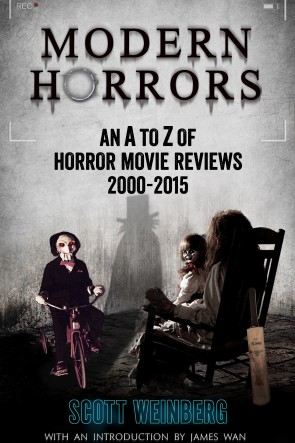Now Showing: THE WHISPERER IN DARKNESS (2012){0}
Back in 2005 I was lucky to catch a 47-minute Lovecraft adaptation called The Call of Cthulhu, thanks to the Slamdance programmers who liked it enough to book it … even though it’s only 47 minutes long. Easily one of the most faithful Lovecraft adaptations ever produced (the best of the adaptations often take great liberties with the man’s work). The Call of Chtulhu was a perfect little jewel in its own right, and it was just nifty enough to make me wish the producers had expanded the original text to make the film a bit longer. But when a film is produced by a group called The H.P. Lovecraft Historical Society, you’re talking about some serious fans who don’t want to mess around with their patron saint’s masterpieces.
Looks like Andrew Leman, Sean Branney, and all of the stunningly devoted Lovecraft junkies at the HPLHS have learned a few things from their first film. Their second Lovecraft adaptation is an expansion in every conceivable fashion. Not only is their rendition of The Whisperer in Darkness a clever, crafty, moody, and adorably old-fashioned adaptation of a classic Lovecraft story, but the flick runs a generous 106 minutes that should absolutely thrill the legions of HPL lunatics out there. (Whether this flick will “speak” to anyone unfamiliar with Lovecraft’s work, I cannot say, but there’s nothing wrong with cool indie films that are made “by fans, for fans.” Best of all, the producers have taken the “big leap” with their second adaptation: they’re adding their own stuff. Before you gasp in horror, it’s important to note that Lovecraft himself was perfectly fine with other writers and artists who wanted to expand upon his Cthulhu mythology.
Truth be told, I think the late Mr. Lovecraft would be a big fan of the HPLHS version of The Whisperer in Darkness. Like most horror fans, I don’t want people monkeying with classic stories from brilliant dead authors — but by this point I trust the Leman/Branney team to treat the material right. Lovecraft’s stories (and sometimes just his titles) have been abused by lazy filmmakers for years; it only seems fair that the earnest and passionate fans have their fair shot at doodling within the margins of their favorite horror author.
Inspired by the 1931 short story of the same name, The Whisperer in the Darkness is about a college professor and “folklorist,” who reluctantly agrees to visit a mysterious little town in Vermont because a local farmer insists that there are wild creatures afoot. Gross, bloated, slimy creatures with wings, no less. Although initially rather skeptical (especially for a professional folklorist), the confused Mr. Wilmarth quickly finds all the disturbing proof he needs: not only are there horrible monsters roaming the farmlands of Henry Akeley, but they seem to be coming from a decidedly otherworldly source.
Shot in a charming, evocative black and white, and boasting some low-key (fine, low-budget) special effects that are actually quite impressive, The Whisperer in Darkness might come off as a dry and chatty affair to some, but those who appreciate the Lovecraftian fare and/or the way a group of passionate filmmakers will work painstakingly to create a movie that simply looks like 1931 – there’s simply a lot to like here. But make no mistake: this is mainly for the “already” fans. By choosing one of Lovecraft’s weirder stories (one of his earliest to use true sci-fi as opposed to simply cosmic horror), Leman and Branney risk alienating the viewers who just want some straight, vicious HPL horror.
On the other hand, it’s ambition like that that makes The Call of Cthulhu and The Whisperer in Darkness relatively unique among cinematic Lovecraft adaptations. Even as the filmmakers hit the point where the original story ends — and their contributions begin – there’s an off-kilter confidence to the movie that keeps the weirdness chugging along very smoothly. Additional assets include a fine lead performance by Matt Foyer, a frankly excellent old-school musical score by Troy Nies, and dozens of little audio/visual tricks that manage to keep the “gimmick” afloat. It’s not just the black & white cinematography; there’s a simple earnest artistry on display here that tells the viewer the filmmakers cared about every moody shadow, every slightly stodgy performance, and (of course) the dark, disturbing imagination of H.P. Lovecraft.
One suspects that a lot of effort goes into the HPLHS films, and it certainly doesn’t seem like they’re destined to become huge sellers to the average viewer, but speaking as only one serious HPL fan, I offer my serious respect to Leman, Branney, and company for making movies out of love, and maybe a little money, if they’re lucky.
And if they’re taking requests, I’d like their next flick to be an adaptation of The Colour Out of Space. It’s just so damn creepy.
Scott Weinberg (@ScottEWeinberg)
The Whisperer in Darkness is available in the UK here.








